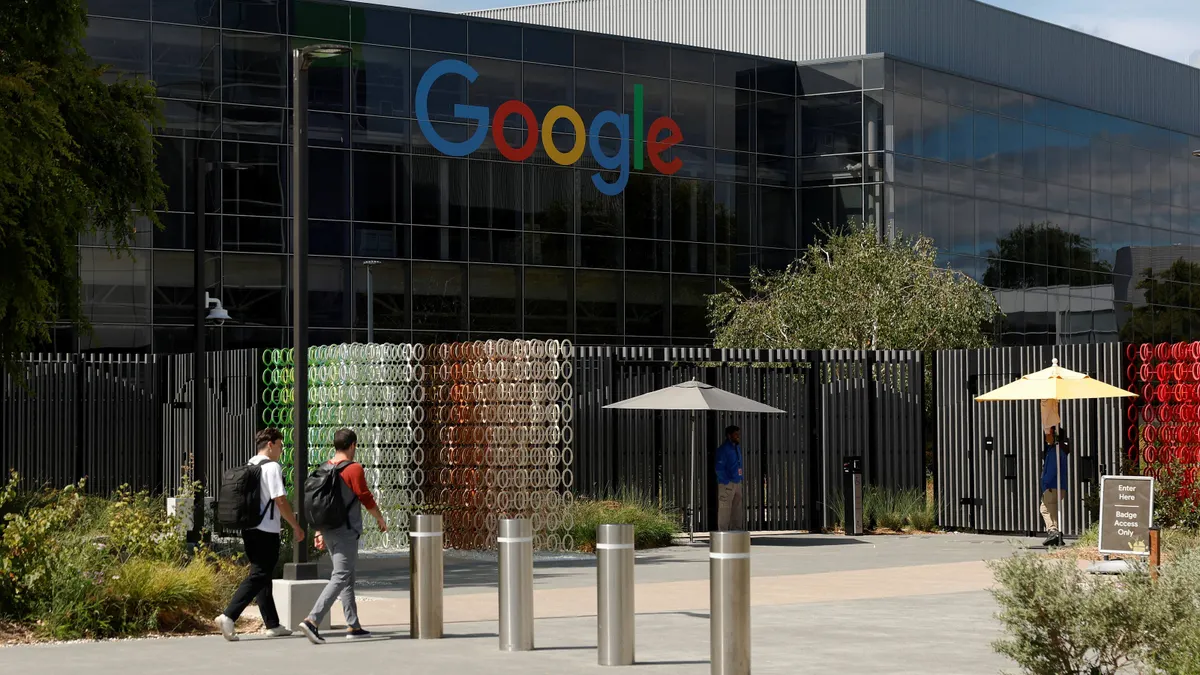Dive Brief:
- Google introduced a technical protocol for transactions made by agentic artificial intelligence on Tuesday as merchants, payments players and consumers prepare for an era of commerce in which bots do the shopping.
- The tech giant, which has made enormous investments in both AI and cloud computing, said in a blog post Tuesday that its open, shared Agent Payments Protocol (AP2) “provides a common language for secure, compliant transactions between agents and merchants, helping to prevent a fragmented ecosystem.”
- The AP2 effort will focus on the authorization, authentication and accountability elements required for agentic AI payments, Google said. The protocol is being established with dozens of partners, including Adyen, Mastercard, PayPal Holdings and Worldpay, according to the blog post.
Dive Insight:
Current payments schemes for online commerce assume a human is clicking a purchase button, but “the rise of autonomous agents and their ability to initiate a payment breaks this fundamental assumption and raises critical questions” the protocol aims to address, the company wrote.
The blog article was authored by Stavan Parikh, Google’s vice president and general manager of payments, and Rao Surapaneni, a Google Cloud vice president.
Google, which is part of Alphabet, said the AP2 protocol uses “mandates,” which are “tamper-proof, cryptographically-signed digital contracts” to serve as proof of shoppers’ instructions.
AI agents are expected to drive about $136 billion in consumer-to-business transaction volume this year, according to a May forecast from the financial services consulting firm Edgar Dunn & Co. By 2030, the firm predicts that value could skyrocket to $1.7 trillion.
The protocol provides “a strong, adaptable foundation to collectively address” the challenges accompanying agentic AI commerce, Prakhar Mehrotra, PayPal’s global head of AI, said Tuesday in an email.
“The goal isn’t necessarily one single standard to 'win,' but rather convergence around those core principles,” Mehrotra said. “AP2 was built to be an open, adaptable, and interoperable protocol, providing a common, secure language that other systems—including regional standards—can integrate with and build upon.”
The protocol addresses human-present transactions, in which a request to an agent generates an “intent mandate,” followed by the agent presenting a “cart mandate” for approval of the purchase. The cart mandate “creates a secure, unchangeable record” of the items and price, Google said.
For human-not-present purchases, the protocol creates a customer’s “intent mandate” that specifies price limits, timing and other conditions. “It serves as verifiable, pre-authorized proof that can allow the agent to automatically generate a cart mandate on your behalf once your precise conditions are met,” Google said in the blog post.
The protocol will support a variety of payments, including stablecoins and other cryptocurrencies, Google said.
Mastercard is focused on enabling agentic transactions with tokenized credentials today, “while also preparing for a future where the internet itself is rewired to support agentic commerce more natively,” the network’s chief digital officer, Pablo Fourez, said Tuesday in an email from the company, based in Purchase, New York.
The Google-led protocol acknowledges a future where fintechs and others will try to create “friction-free consumer experience,” Cindy Turner, Worldpay’s chief product officer, said Tuesday in an interview. “And they’re trying to arm that community with a way to do that in a framework that can drive real clear consumer accountability for the purchase and the cart validation in a way the merchants are able to go validate the purchase intent.”
Some in the industry “believe that they can control an ecosystem in which 100% of transactions will have a human in the middle,” Turner said. “And I’m a bit skeptical that they’re going to be able to mandate a target state that always forces the human to fully authenticate the cart.”
Adyen, the Amsterdam-based global payments processor, endorses open standards because they will drive “scalable innovation,” Andreu Mora, the company’s senior vice president of engineering, said Tuesday in an email. “We’re charting a future where all commerce, AI or human-initiated, is optimized for maximum conversion, minimum fraud and minimum operational overhead," he said.
The industry will still need “a lot of innovation” to address the challenges of fraud and chargebacks that agentic commerce will bring, Turner said. “But this, to me, feels like a highly, highly reasonable way in which we can all navigate this next wave of innovation.”













